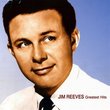Which Davis "Child of Our Time" to Choose?
Santa Fe Listener | Santa Fe, NM USA | 08/31/2008
(3 out of 5 stars)
"I'm giving my hand away by awarding Sir Colin Davis's latest recording of Tippett's towering oratorio only three stars. He diectly commpetes with himself twice over: there's already a live 2003 concert from Dresden released by Profil and a classic 1975 studio account on Philips. I imagine that devoted admirers of this music will be curious about how the three versions compare, so here are thumbnail sketches:
Philips 1975 -- Long considered definitive, the earliest version features incomparable solo singing from Janet Baker, who is so committed and moving that she elevates Tippett's woolly but heartfelt text. Two other soloists, bass John Shirley-Quirk and the then-just-emerging Jessye Norman, are scarecely less good, although Norman's huge projection does tend to swallow up the words. The voice of the murdered Jewish boy who is the child of the title belongs to Richard Cassily, and I wish he were more focused vocally at times, but he is powerfully expressive and poignant. The BBC Symphony plays well but is no match for the later London Sym. We get excellent choral work from the combined voices of the BBC Singers and BBC Choral Society --unfortunately, Philips' sonics are resonant to the point of sounding cavernous, clouding the mass singing. As an interpreter, the young Davis is more lively and alert than in later years. All in all, a great recording.
Profil 2003 -- In Dresden, after an absence of 33 years, Davis returns to disc with a broader reading that remains deeply eloquent nevertheless. The solo quartet -- soprano Ute Selbig, mezzo Nora Gubisch, tenor Jerry Hadley & bass Robert Holl -- includes only one native English-speaker, which is a hindrance, but all are vocally superior to the later London quartet. The late, tragic Hadley is passionate although indlging in operatic sobs too often. Selbig's voice soars gorgeously -- she is someone to keep an eye on in the future. The orchestra and chorus of the Dresden State Opera perform well, but the acoustic buries the chorus so far back that all their words are garbled -- the biggest drawback to this otherwise moving reading.
LSO Live 2008 -- Although Davis, at eighty, remains energetic enough to propel the music when needed, there's a marked drop off in intensity. One must settle for eloquence of the more reflective kind. There's no doubt that he's still in command of a beloved score, and the London Sym. and chorus are probably the best musical forces among the three recordings, if not by much. The sound is clear, with good word capture from the vigorous chorus, but I'm not sure that ultra-modern SACD compensates for the solo quartet, all young English professionals but lacking in charisma and emotional impact. Even the non-native singers on the Dresden recording sound more anguished and involved. Strange, given the conductor's total dedication to this work.
It would be a long way around Robin Hood's barn to wind up simply saying that the original 1975 reading is the best, but it is. Now out of print, in the US at least, it can be found in a private release from www.arkivmusic.com. I should also point out that A Child of Our Time enjoys two other outstanding recordings, the composer's on, now on Naxos, and the first one, under John Pritchard, which sells cheaply at Amazon Marketplace. In any event, I've concentrated on various details at the risk of missing the mian point, which is that Tippett created a compassionate, heartbreaking masterpiece that deserves its reputation, along with Britten's War Requiem, as the greatest English chroal work after Handel."
Tippett's Child: Vivid, Involving, This Music in Surround So
Dan Fee | Berkeley, CA USA | 08/01/2008
(5 out of 5 stars)
"Like Britten's War Requiem, Sir Michael Tippett's oratorio (cum requiem?) titled A Child Of Our Time is something of an acquired taste. Each composer worked in a tonally-based idiom without belonging to any particular composer's school of their original contemporary musical era in the last century. Each seems to have found his own personal musical way.
Tippett's work combines orchestra, choir, and soloists in a panoramic work of color, sweep, dramatic narrative, and lyric meditation. This work owes as much to, say, Prokofiev's Alexander Nevsky as it does to Verdi and all the other great requiems, not to mention how indebted its shapes are, to all the ideas of an orchestral song cycle writ large, springing from Berlioz Les nuits d'ete, all the way to Mahler's song cycles, thence to Britten's Spring Symphony, to Bernstein's Songfest. Behind all of these stands that mountain range of high peaks, JS Bach's passions.
The choral writing is often angular with bracing corners and clear, criss-crossing lines in that distinctive British choral manner, already familiar from Walton or William Matthias or others around and after the great world wars. Like other musical works of this scope and depth, the chorus gets multiple assignments - helping to paint the scene and set the scene, commenting like a tragic Greek chorus upon fateful turns, backing up the soloists and introducing them as voices bigger than solitude, rooting the solo singers in this or that musical context compelling.
Sir Colin Davis must like this work, and believe in it. He has recorded it too many times for his devotion to be either marketing driven or accidental. He competes with himself, then, in at least two other recordings where he has led the likes of the BBC Symphony (with soloists Janet Baker and Jesseye Norman), or of the Dresden Staatskapelle. He is also up against some pretty stiff recorded competition from Previn with the Royal Philharmonic, and the composer himself inspiring the City of Birmingham Symphony.
Not to worry. This performance ranks right up there with the others. To my ears, none of them sound wrong, really. Perhaps that is just a function of my continuing new long acquaintance as I continue to befriend and delve repeatedly into this surprisingly compact, many-layered work.
The soloists in this recording all sound young, and have hardly built up the world class reputations we can contentedly associate with, say, Dame Janet Baker whose fame is solid gold by now. But no soloist is weak or uncommitted, even if none are famously acclaimed at the end of long distinguished careers.
The African American spirituals which crown Tippett's work are all taken from hallowed local church music traditions. And no, nobody sounds very Black Baptist in the choir. But so what? Tippett ensconces the spiritual where it no doubt belongs, at musical pinnacle moments, heartfelt, outspoken, direct, appealing, stirring.
This is a sad music, not happy. Our world is suffering, and we mourn with those who mourn so many different things all around the planet. Yet as theologian James Cone urged us to understand, we are affirming human life even when we belt out the blues with every ounce of faltered and wounded strength we dredge up at the sad moments.
Highly recommended, then, in vivid surround sound multiple channel super audio. A life affirming set of gold review stars, then."
![Sir Michael Tippett: A Child of Our Time [Hybrid SACD]](https://nationalbookswap.com/cd//l/29/3329/6173329.jpg)




